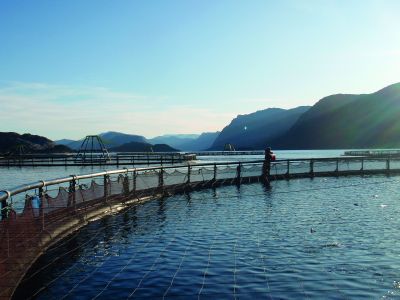Difference between revisions of "Marine Biotechnology securing Food supply"
| Line 1: | Line 1: | ||
| + | {{Marine Biotechnology}} | ||
| + | |||
Marine Biotechnology is essential to satisfy the growing demand for high quality and healthy products from fisheries and aquaculture in a sustainable way. The growing demand for marine food will need to be increasingly delivered through intensive aquaculture. Rapid biological and biotechnological progress in the last decade has resulted in a more efficient and environmentally responsible aquaculture and a greater diversity of marine food products. | Marine Biotechnology is essential to satisfy the growing demand for high quality and healthy products from fisheries and aquaculture in a sustainable way. The growing demand for marine food will need to be increasingly delivered through intensive aquaculture. Rapid biological and biotechnological progress in the last decade has resulted in a more efficient and environmentally responsible aquaculture and a greater diversity of marine food products. | ||
Revision as of 11:42, 23 November 2012
Go back to: Home > Strategies, Policies and Programmes > European countries
| [[{{{Image}}}|caption|right|280px]] |
Marine Biotechnology is essential to satisfy the growing demand for high quality and healthy products from fisheries and aquaculture in a sustainable way. The growing demand for marine food will need to be increasingly delivered through intensive aquaculture. Rapid biological and biotechnological progress in the last decade has resulted in a more efficient and environmentally responsible aquaculture and a greater diversity of marine food products.

|
| Marine Biotechnology applications in aquaculture can enhance the sustainable supply of high quality and healthy food. |
Marine Biotechnology has contributed significantly to increasing production efficiency and product quality, to the introduction of new species for intensive cultivation and the development of sustainable practices through a better understanding of the molecular and physiological basis for health, reproduction, development and growth, and a better control of these processes. However, commercial aquaculture continues to face challenges in understanding and controlling reproduction, early life-stage development, growth, nutrition, disease and animal health management and environmental interactions and sustainability.
Examples of Marine Biotechnology research for sustainable Food supply
- Marine derived food additives
- Marine derived nutraceutics
- Marine derived E-numbers
- Marine biotechnological progresses in aquaculture
Research priorities and objectives
Overarching research target:
Development of food products and ingredients of marine origin (algae, invertebrates, fish) with optimal nutritional properties for human health.
Key research priorities:
- Develop innovative methods based on -omics and systems biology for selective breeding of aquaculture species;
- Develop biotechnological applications and methods to increase sustainability of aquaculture production, including alternative preventive and therapeutic measures to enhance environmental welfare, sustainable production technologies for feed supply, and zero-waste recirculation systems;
- Integration of new, low environmental impact feed ingredients to improve quality of products and human health benefits.